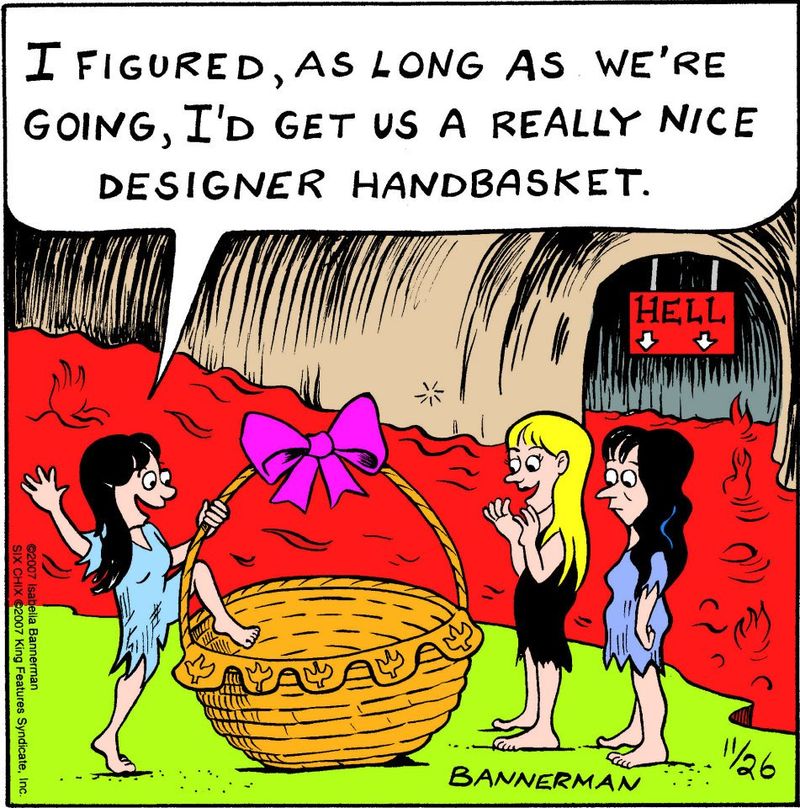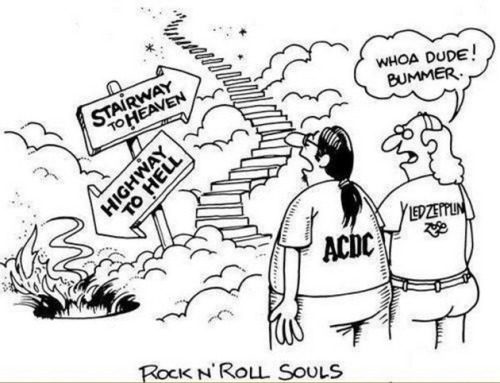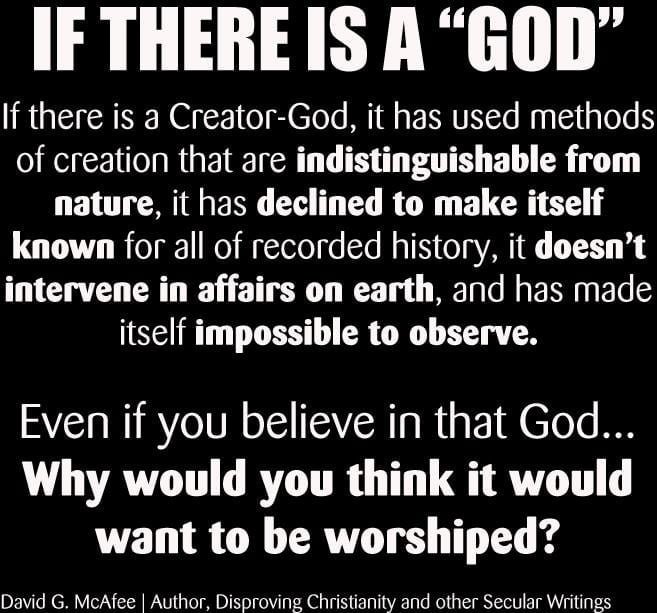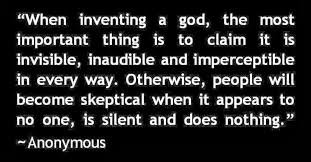
Guest Post by ObstacleChick
Growing up in a small town on the outskirts of Nashville, Tennessee, I knew that the vast majority of people belonged to some sort of evangelical Christian church. Those who did not were considered the worst type of heathens, ready targets for “witnessing” about the “Good News” of the Gospel. As Southern Baptists, we attended Sunday School and church services on Sunday morning, Training Union and prayer service on Sunday evening, and prayer service (and youth group for teens) on Wednesday evening.
After my parents separated when I was 3 years old, my mom and I moved in with my maternal grandparents and my great-grandmother. My grandparents were extremely active in the church — Grandpa was a deacon and Grandma taught women’s Sunday school and Women’s Missionary Union classes during the week. Grandma spent a couple of hours each day studying the Bible, referring to her small library of Bible concordances, Bible history books, and books by prominent Christian writers. My mother, a rarity as a divorced single woman in the early 1970s in our community, had a hard time fitting in at church, but work and church were her only places to make friends.
As a small child, I was taught all the Bible stories in Sunday school. I always had a lot of questions. When I was 5 years old my mom said I pestered her with so many skeptical questions about Santa Claus that she finally admitted Santa was a made-up story for children but not to tell the other kids who still believed. I was very pleased with myself. The same thing happened with the Bible stories — I asked lots of questions: how was it possible for Jonah to breathe while he was in the belly of the whale? What did the animals eat when they were on the ark during the flood, especially the meat-eating animals, if there were only a pair of each animal? How could plants grow so fast after the flood for the bird to bring back an entire branch? How come there were giants like Goliath but there aren’t giants anymore? Why would God, who is supposed to be loving, ask Abraham to kill his son Isaac just to test his obedience? And why in the world would Isaac just lie down and allow himself to be killed? Why didn’t God like Cain’s offering of produce as a farmer but he liked Abel’s offering of animals as a shepherd – how is that fair? How could Shadrach, Meshach, and Abednego possibly survive a fiery furnace? Finally, my mom admitted that some of those stories might just be allegories in order to teach lessons, but that I shouldn’t go around saying that at church. Again, I was pleased with myself.
Things may have turned out differently for me if I had not been sent to a fundamentalist evangelical Christian school. There was a rumor that students from our part of the town would be bused to a “bad” section of Nashville, so my grandparents and mom sent me to the Christian school for admission testing. I passed and was enrolled in 5th grade. I hated the dress code — girls had to wear skirts all the time, and skirts must be a certain length or one would be sent home to change. In the handbook, it stated that girls should dress as God made them — “feminine.” I despised that. My mom let me wear shorts under my skirt so I could hang upside down from the monkey bars at recess until a teacher told me that was inappropriate and I was no longer allowed to hang upside down from monkey bars. Boys could but apparently that behavior was unacceptable for girls. We were taught young earth creationism and required to take Bible class with a Bob Jones University curriculum. In middle school and high school, we had Bible class 3 days a week and chapel service 2 days a week. Sometimes it was possible to sneak notes into the Bible to study during chapel if the teachers didn’t see it. There was an annual week-long Bible Conference where guest preachers were brought in for an intensive “soulwinning” week. I’m pretty sure I was “saved” every year at Bible Conference for fear of hell.
There were a lot of rules at the school, some applicable outside school as well. Any student caught with tobacco or alcohol on or off school property would be expelled; pregnant girls were immediately expelled; being caught attending the local rollerskating rink would result in suspension. There were also the prejudices we learned from school — that certain Christian sects such as Catholics were not “real Christians”; that people who were not part of fundamentalist Christianity were apostates and in need of salvation; and of course, homosexuals were sinful and misguided people whom we must “turn” back to heterosexuality and to salvation.
I hated this school so much, but I didn’t feel I could tell my family because they were paying for it, and they were so convinced that it offered a superior education, taught values, and would provide an environment away from “bad influences” at public school. But teachers were underpaid and overworked, so the faculty had either been teaching there forever or left within a year or two. New teachers were required to have graduated from Bob Jones University, Pensacola Christian College, or some other fundamentalist-approved school. Students were urged to attend those schools too (though they left me alone when I stated my goal to attend Vanderbilt University and had the test scores necessary to gain admission). To their credit, they did everything to help me with my application, and they never treated me differently intellectually for being female. I know, shouldn’t that be normal in the “real world”? Of course — but for fundamentalist Christians that was a big step.
Finally in college, I had my freedom. While I did join the Baptist Student Union and went to First Baptist Church Nashville the first 2 years, my church attendance waned. My first big shakeup was when I took a History of Christian Thought class. There I learned that the books of the Apocrypha were canonized scriptures. Canonized! How could Protestants have it both ways, stating that canonized Scriptures were inerrant and inspired by God, yet rejecting certain canonized Scriptures? I had always felt that fundamentalist Christianity was anti-intellectual and was embarrassed around my educated peers to admit that I was part of this branch of religion, but this information about the Apocrypha being canonized scriptures proved that the concept of inerrancy of Scripture was a lie.
After college I married a man who was raised nominally Catholic, and we attended progressive Christian churches. Even when he declared his agnosticism, he still liked the people at the church and continued attending. Then Chichen Itza happened.
Our kids were 7 and 5 when we went on a trip to Mexico and visited the ruins at Chichen Itza. We learned about the Mayan culture and about a special ball game in which the winner would be sacrificed to the gods to ensure good crops next season. There were other times when people were sacrificed to the gods, either to appease the gods or to ensure good weather/crops/etc. For some reason, this information hit me like a thunderbolt with the realization that the ancient Mayan religion and Christianity (and ancient Judaism) were no different with regard to blood sacrifice. The god(s) get angry, thus something has to die. This thought made me sick to my stomach. We were taught that somehow Christianity was different, that God is good and love, but no – God was no different from any other gods requiring a blood sacrifice for appeasement. I told my husband that I couldn’t go back to church, even though our progressive church focused primarily on teaching members to be good people and serving the community. I could not support any religion based on primitive blood sacrifice. For a decade I declared I was “taking a break from religion.” In reality, I wasn’t ready to admit that I might be an atheist, because I still felt strong aversion to the word. Atheists, I had been taught, had no values, had no moral compass, had no compassion, had nothing to live for … yet my husband eventually became an admitted atheist and he has some of the best values I have ever encountered. He cares about other people, he has purpose in life, and I am fortunate that he has shown me that an atheist can be an exemplary member of the human race without needing any “gods” in his life.
Inside, I was tormented with the concept of hell though. What if I was wrong? What if I had removed my children from church and any opportunity to be “saved”? What if I was single-handedly responsible for my children spending an eternity in hell? That thought nagged at me for years. I would push it away, but it came back again and again to haunt me. Yes, an educated, rational person who no longer believed the tenets of evangelical Christianity still had this fear. I started reading books by Richard Dawkins, Michael Shermer, Christopher Hitchens, and other authors. My husband implored me to speak with a pastor friend whom we knew before I turned toward atheism. This puzzled me, but he said he wanted me to have a forum to speak with an educated Christian about my questions before walking away from the teachings of my upbringing. But for me, the door was closed. No amount of Christian apologetics could turn me around. I no longer feared hell, I no longer believed it existed, and I believed that the probability of a god or gods — especially the one depicted by Christians evangelical or otherwise – was near nil.
I haven’t “come out” to my Nashville family members or to my Catholic in-laws. I told one close friend from childhood who is a progressive Christian, and she didn’t seem surprised. Apparently, only about a quarter of our Christian school classmates remained in fundamentalism and most became progressive Christians. Any atheists have kept that information confidential.
My teen children are well-adjusted individuals with good values. I have asked them whether they are interested in pursuing any religions, and while they have friends from a variety of backgrounds – protestant Christian, Catholic Christian, Judaism, Islam, Buddhism, no religion — they say they aren’t interested. They don’t even label themselves with regard to religion — my daughter was filling out the common application for college and asked me what she should put with regard to religion, and we settled on “none.” My kids aren’t afraid of hell, they don’t feel that they have to serve an invisible deity, yet they are kind humans who try to do the right thing and help others. Before my mom died a few years ago, she expressed that she hoped that all of her children and grandchildren would be “saved” before she died. I told her that we would all be fine. And they are saved — from the shame and fear inherent in fundamentalist Christianity.


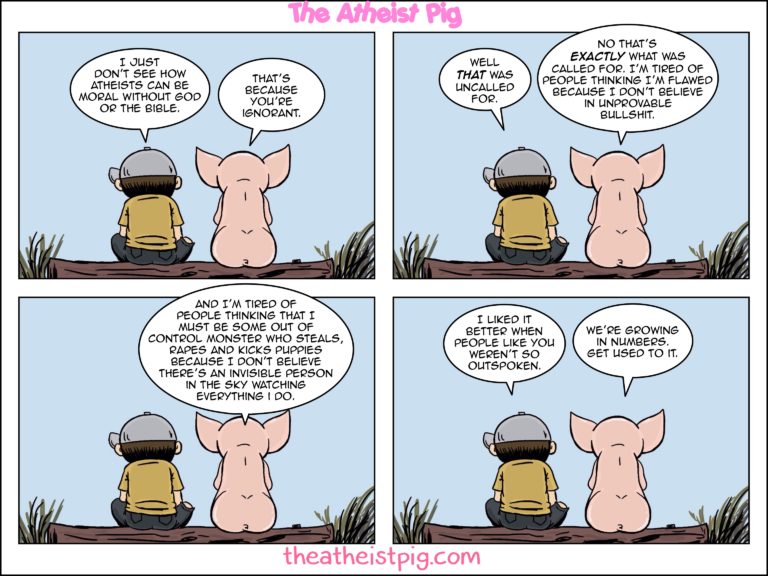
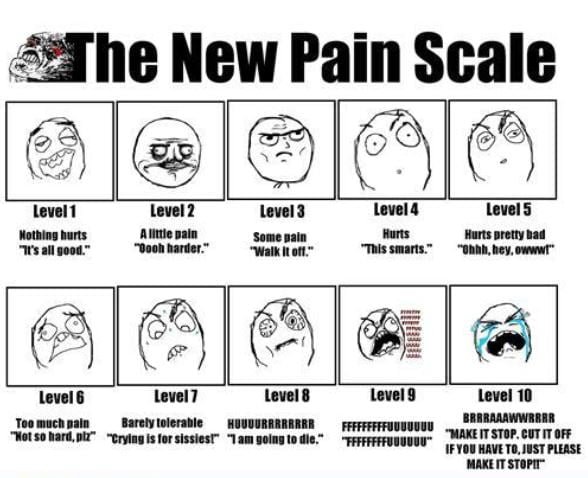

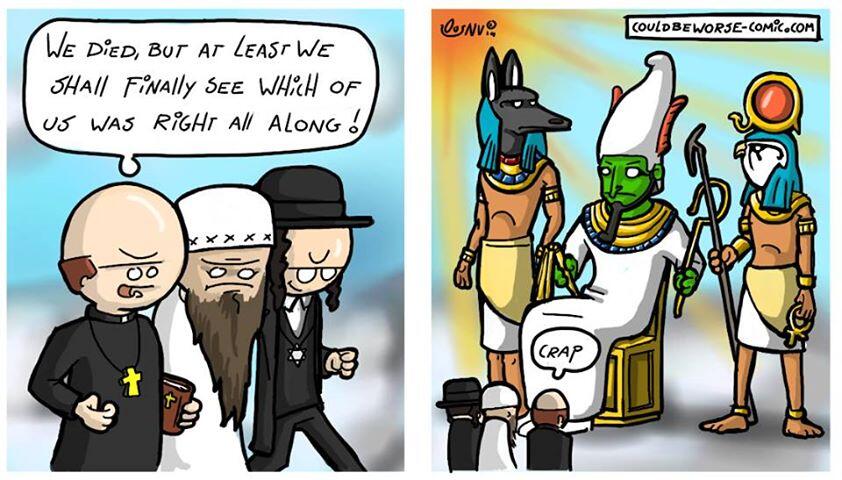

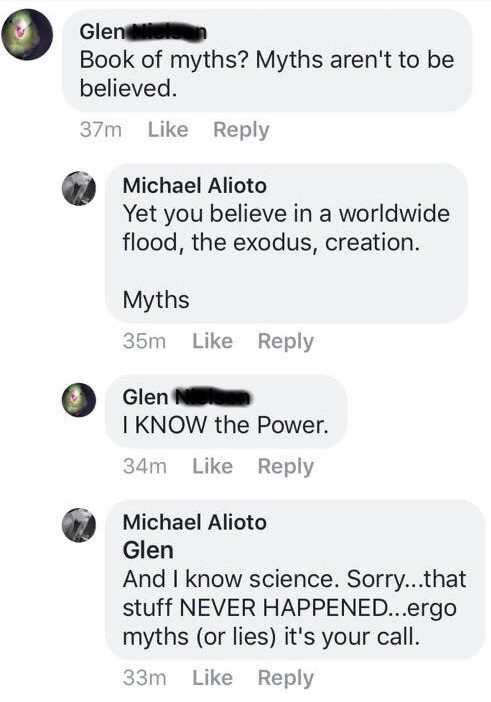
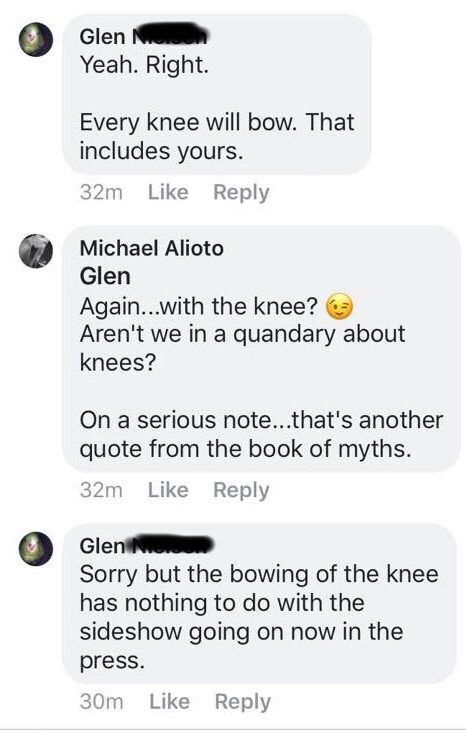

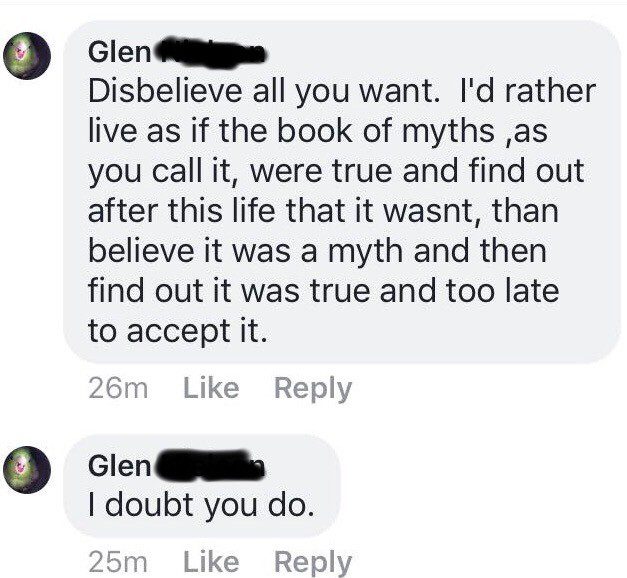
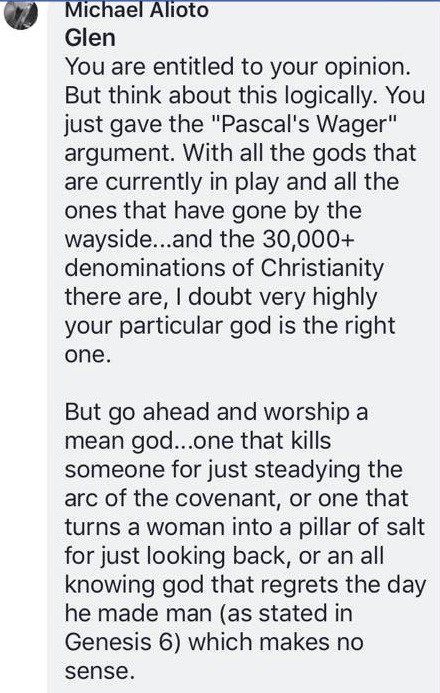
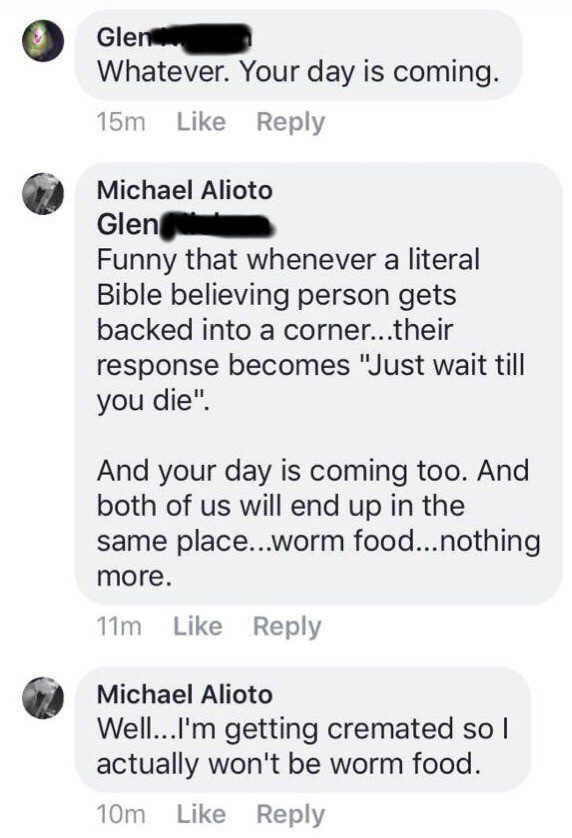



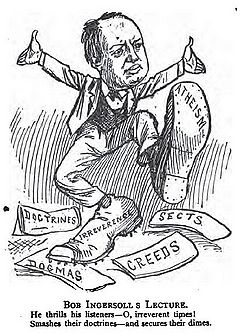 Let us be honest. Let us preserve the veracity of our souls. Let education commence in the cradle—in the lap of the loving mother. This is the first school. The teacher, the mother, should be absolutely honest.
Let us be honest. Let us preserve the veracity of our souls. Let education commence in the cradle—in the lap of the loving mother. This is the first school. The teacher, the mother, should be absolutely honest.